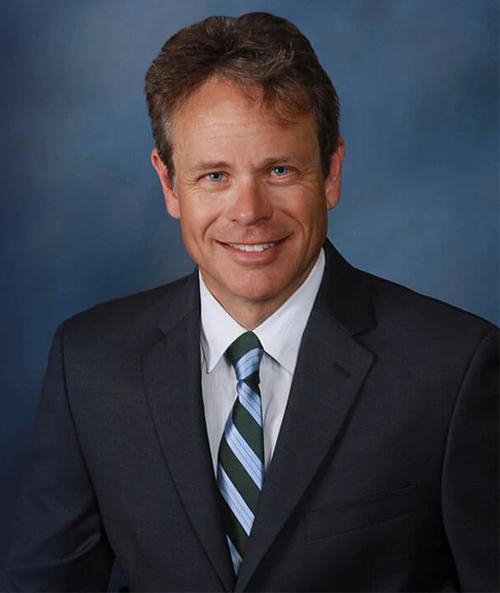Veterans May Discuss Medical Marijuana with VA without Fear
Map of Medical Marijuana Legalization Key Medical Marijuana Facts
Until recently, veterans who brought up marijuana use with their Department of Veterans’ Affairs (“VA”) health providers were treated like drug addicts. They felt stigmatized, and even feared that they might lose their VA benefits. However, a recent VA directive seeks to erase that stigma – encouraging veterans who use medical marijuana as a part of their treatment to discuss their use openly.
>Read indepth about VA Directive 1315 here
VA Directive Allows Veterans Living in States with Legal Medical Marijuana – Such as Alaska, Arizona, California, Florida, New Mexico, and Hawaii – to Discuss the Drug with VA Doctors
Veterans who bring up marijuana use cannot be penalized through the suspension or denial of VA benefits, however the directive still leaves several marijuana-related restrictions in place. For example, the VA is still forbidden from recommending marijuana use or completing paperwork for marijuana programs, and veterans are not allowed to bring marijuana onto VA property.
![did you know veterans]() As many as 20 percent of veterans who served in the Iraq and Afghanistan wars suffer from Post-Traumatic Stress Disorder, an ailment for which medical marijuana is widely recognized as effective treatment. 1
As many as 20 percent of veterans who served in the Iraq and Afghanistan wars suffer from Post-Traumatic Stress Disorder, an ailment for which medical marijuana is widely recognized as effective treatment. 1
![did you know veterans]() Nearly 60% of the U.S. population now lives in states that have legalized some form of marijuana use and sales, illustrating the rising acceptance of cannabis nationwide and highlighting the industry’s immense potential for future growth 2
Nearly 60% of the U.S. population now lives in states that have legalized some form of marijuana use and sales, illustrating the rising acceptance of cannabis nationwide and highlighting the industry’s immense potential for future growth 2
Key Facts about Medical Marijuana
- The term medical marijuana refers to treating symptoms of illness and other conditions with the whole, unprocessed marijuana plant or its basic extracts.
- The FDA has not recognized or approved the marijuana plant as medicine.
- However, scientific study of the chemicals in marijuana called cannabinoids has led to two FDA-approved medications in pill form, dronabinol and nabilone, used to treat nausea and boost appetite.
- Cannabinoids are chemicals related to delta-9-tetrahydrocannabinol (THC), marijuana’s main mind-altering ingredient.
- Currently, the two main cannabinoids from the marijuana plant that are of interest for medical treatment are THC and cannabidiol (CBD).
- The body also produces its own cannabinoid chemicals.
- Scientists are conducting preclinical and clinical trials with marijuana and its extracts to treat symptoms of illness and other conditions.
- Medical marijuana helped over 90% of the people who were using it.
- Marijuana is the second most frequently found substance in drivers’ bodies after serious traffic accidents.
- $326 is the average price for 1oz of high-quality marijuana
- There are more marijuana smokers than tobacco smokers.
- Marijuana is not a gateway drug.
- The most expensive marijuana is sold in the District of Columbia.
- 24% of young adult Americans use marijuana.
- At the moment, medical marijuana is legalized in 33 states.
- The US government is trying to stop medical marijuana legalization.
- No one has still died of a marijuana overdose.
Latest Veteran Medical Marijuana News
![question for veterans about medical marijuana]() Do you think veterans suffering from service-connected disabilities such as PTSD, which often leads to unemployability, should have the legal right to be prescribed medical marijuana? Other diseases that veterans suffer from - including arthritis, Hepatitis C and cancer - benefit from cannabis treatment, too.
Do you think veterans suffering from service-connected disabilities such as PTSD, which often leads to unemployability, should have the legal right to be prescribed medical marijuana? Other diseases that veterans suffer from - including arthritis, Hepatitis C and cancer - benefit from cannabis treatment, too.
You Served, You Deserve
As veterans’ advocates, we support any step that makes access to benefits more secure for our nations’ heroes. If you served, you should never fear that choosing a legal treatment option will put the benefits you rely on in jeopardy. Therefore, we wholeheartedly support the directive.
If you are a veteran with a service-connected disability and you believe you may not be getting all of the benefits you deserve, we encourage you to apply for benefits through your Regional Office right away. If your application is denied or you receive an unacceptable disability rating, send us a note or give us a call at (877) 629-1712. Our goal is to make sure this nation’s veterans are cared for and, with decades of experience overturning RO decisions, we are certain we can get you the benefits you deserve.

.jpeg)
